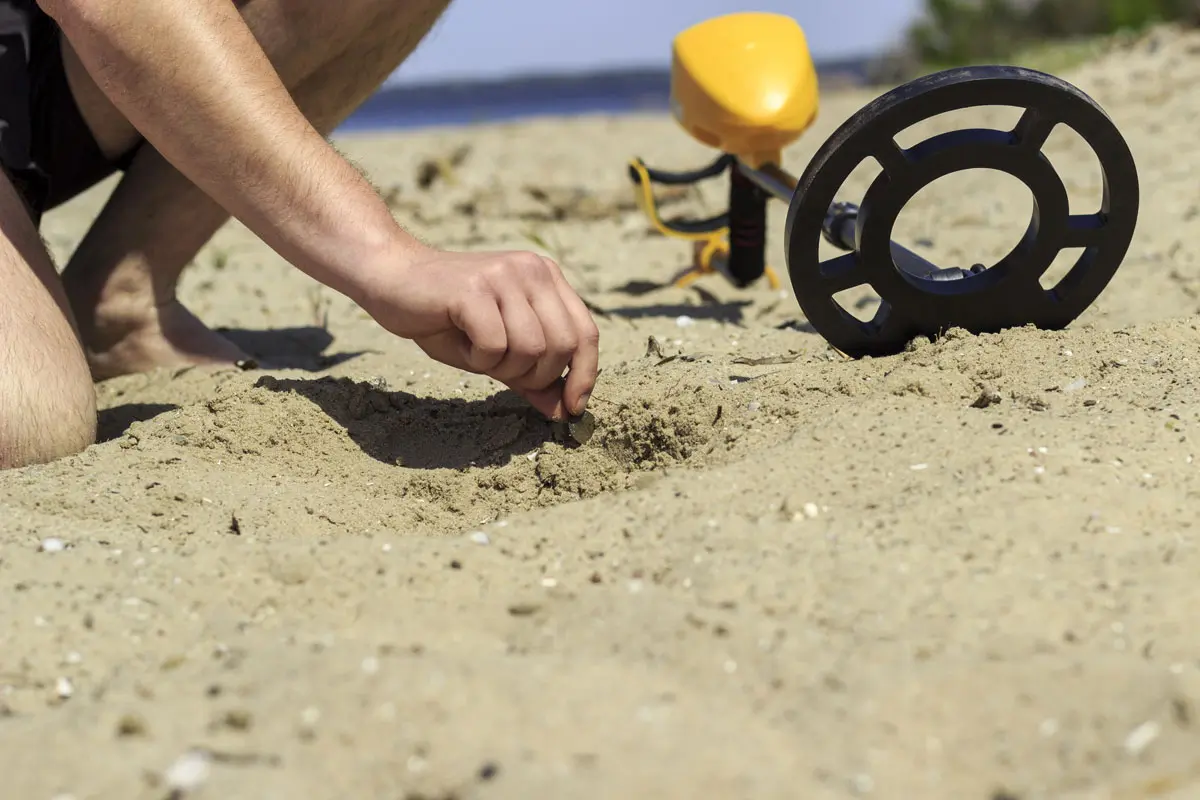I hear a lot of questions from interested passersby when I’m out detecting. But some of the questions I see come from Google searches on the subject of metal detecting….
I hear a lot of questions from interested passersby when I’m out detecting. But some of the questions I see come from Google searches on the subject of metal detecting. Things like:
What is the point of metal detecting?
Is metal detecting a good hobby?
Is metal detecting legal in the US?
Can metal detecting make you money?
I’m happy to answer each of these questions and more! But let’s start with a little lesson about how metal detectors work and the first question: What is (the point of) metal detecting?
What is the point of Metal Detecting?
This is a rather blunt way of phrasing the question, but believe it or not it’s a commonly searched phrase on Google. Using a phrase like “what is the point” makes it sound like people don’t understand the hobby. And you know what…maybe they don’t! It might seem obvious to those of us who are already in the hobby, but others might feel that it looks boring.
The “point” of metal detecting varies. For some of us, it’s just about getting outside and feeling the excitement of finding something. There’s a special thrill of locating a target and discovering what it is. It’s hard to explain to someone else how exciting it is. Maybe they need to just try it – (take a lesson with me!)
For others, the purpose can be recovering lost items, assisting police departments with recovery of bullet casings and weapons, and less common but still relevant: locating property or utility lines with specialized equipment.

How Metal Detectors Work
A metal detector has three main components: a search coil, a shaft and grip, and a display. A metal detector transmits an electromagnetic field into the ground below you from the search coil at the end of the shaft. There are different shapes of the coil, but it’s generally round or oblong in shape. When the field from your coil passes over a metal object below, the object becomes energized and emits a signal of its own. A metal detector is designed to “detect” that retransmitted signal and alert you on a display.
If you want a longer lesson on metal detecting, have a look at Minelab’s article about metal detectors.
Is Metal Detecting a Good Hobby?
This is very subjective, but I would say…yes! First, you need to know thyself. If you are not interested in the time required, cleaning up after yourself, and working hard before finding something interesting…it may not be for you. Many people enter the hobby because they want to find gold rings on the beach. But many more say that they are just curious! That curiosity is the best indicator that it might be a great hobby for you.
It might take you 300 targets before you find anything you find interesting, or you could find something neat right away! Also, if you just like the idea of cleaning up buried objects, that’s a great attitude to have. Ideally, we are all contributing to cleaner public spaces.
Is Metal Detecting Legal in the US?
Yes and no! It depends where you want to use a detector. National Parks…nope! Always be sure to check before you detect. Even local or state parks can have rules, permitting processes, or special restrictions. You want to be aware of those and any other hazards before you detect.
You should even be careful before digging in your yard! If you aren’t familiar with the location of utility lines, you could be in for a shock. There’s a reason utility companies have “CALL BEFORE YOU DIG!” stickers all over their vehicles. It’s worth being careful.
Can Metal Detecting Make You Money?
Possible, but not likely. Again this really depends on what you’re hoping to do with the interest. There are definitely careers in metal detecting where you might focus on locating objects for police departments. But if your idea is to find enough gold to pay yourself a hefty salary, that is very unlikely. Many detectorists do cash in the coins they find during the year and that can get into the hundreds of dollars on average. If you live in a tourist area and know the swimming spots (and want to dive in the water), you can find bigger items.
Items of large value should be reported to the local police. Many detectorists do everything they can to locate the owner of a valuable or sentimental item like rings and phones. Check out all the cool YouTube videos available on ring and phone finding!
